- Home
- Robin Cook
Cell Page 21
Cell Read online
Page 21
“Amalgamated Healthcare, most definitely. He’s bent out of shape about something called a reservoir. He left the hospital with a package of surgical gloves, going to DeAngelis’s funeral.”
“Shit,” Clayton mumbled. He could feel his stomach start to suds up. This George problem was going from bad to worse. “Okay, Debbie, thanks,” Clayton said as amiably as possible. “I appreciate the info, but I gotta run now. Talk soon, and see you Saturday night.”
Clayton hung up without waiting for Debbie to say good-bye and speed-dialed Thorn. The executive’s voice mail picked up, and Clayton could only leave a message asking Thorn to call him back ASAP. It was important.
Clayton went back to the pool, smiling at his young lady friend, and tried to refocus his attention on her. But he couldn’t. There was way too much at stake to relax. Something had to be done, and done quickly.
34
CARTER’S FUNERAL HOME
WESTWOOD, LOS ANGELES, CALIFORNIA
FRIDAY, JULY 4, 2014, 1:45 P.M.
George had the suspicion that Carter’s Funeral Home had been something else in its former life. Incongruously it had a steep gabled roof with windows climbing up to the apex. Maybe it had been a restaurant, he guessed, inappropriate as that was. He surveyed the U-shaped parking lot. There were only a half dozen cars, mostly toward the rear. If employee vehicles were subtracted, then that didn’t leave much in the way of mourners. From George’s perspective that was auspicious. He was counting on few, if any, visitors coming to view Sal’s body.
George went inside. As he had hoped, the place seemed empty, without a soul in evidence. Low-level, mournful organ music from hidden speakers pervaded the place. On a pedestal was a guest book. He looked at the open page. There was only one scheduled service, and that was for Salvatore DeAngelis at 2:00 P.M. He checked his watch. He would have to hurry.
The front room on the right was a reception area with overstuffed upholstered seating. On the left was a room with various caskets on display. George walked down a central corridor, which ran parallel to the long axis of the building. He came to a room with open double doors. On a pedestal in front of a makeshift altar was a closed casket. A dozen or so folding chairs had been set up. No one was in the room. He checked his watch again, unsure what to do: fourteen minutes until the service was scheduled to begin. He couldn’t tell whether or not he was looking at Sal’s casket, but, considering that the man had rocketed through a windshield and impaled himself on an LED display, a closed-casket service sounded like an appropriate idea.
Wanting to get a better lay of the land, he continued down the main hallway. Through a partially opened door on the left he spotted two women with their backs to him talking in subdued tones with a man in a dark suit and a forlorn expression. Sal’s sisters? he wondered. From the style of their clothes and hats, they looked like stereotypical old maids. A quick glance at the name on the door confirmed that it was the office of the funeral director, Myron Carter.
“May I help you?” a man whispered in George’s ear. George nearly jumped out of his skin. He spun around, confronting the chest of a hulking man in a conservative suit similar to the funeral director’s.
“Hopefully you can,” George replied in a hushed tone. “I’m here to pay my respects to Salvatore DeAngelis.”
“Back this way.” The giant gestured back down the hall in the direction George had just come.
The man silently accompanied George back to the room with the closed casket and after a bow thankfully disappeared. Unfortunately there were now two people in the room. One was an African American woman, probably in her sixties, wearing a purple dress, the other a short Caucasian man about the same age. They were not sitting together. The woman had a snippet of a veil covering the top of her face, so it was hard to make out her features, but George didn’t think he had ever met her. He knew he had never seen the man.
George decided to take a seat and figure out his best course of action. It would also give him a few moments to bow his head and say good-bye to Sal—and ask for his forgiveness for what he was about to do if he had the courage to follow through, which he doubted, what with mourners in the room.
He was convinced that if something had gone wrong with Sal’s embedded reservoir, the evidence would soon be buried with him. But if George could get hold of the reservoir, he might be able to match the dosages still in it with the approximate date Schwarz had inserted the device.
As if answering his prayers, the two other people in the room suddenly stood up and walked out. George was alone with Sal’s corpse. Checking his watch, he saw there were now only six minutes till two o’clock. If he was going to do anything, this was the time. Besides the canned music in the background, the only sound was the ticking of a grandfather’s clock out in the hallway.
With sudden resolve, George stood up. His pulse was hammering. He felt as if he were about to rob a bank. It was now or never. After looking around to make sure he was still alone in the room, he tried to lift the lid of the casket. It cracked open with ease. He was relieved it wasn’t secured.
After one more glance back toward the hallway, George raised the lid all the way and looked down.
Sal was dressed in a dark blue suit. There had been some attempt to put his face back together, but the result was grotesque. Again asking for Sal’s forgiveness for disturbing him, George donned his gloves before unbuttoning Sal’s jacket and opening his dress shirt to expose his marble-white lower abdomen. George paused for a moment to catch his breath when he caught sight of the wound where the large embalming trocar had been inserted to suck out the blood and intestinal contents and infuse embalming fluid. People assumed doctors were immune to such sights, but they were wrong.
Swallowing hard, George switched his attention to Sal’s left lower abdomen. In addition to a number of abrasions, there were a few shallow, surgical-like cuts in the skin and a deep one that could very well have been made with a utility knife. George inserted a gloved index finger in the deep one and felt around inside the stiff, lifeless tissue. Nothing! There was no reservoir! George felt again to be sure.
Either Sal had succeeded in getting the reservoir out or someone else had. Maybe that was the reason Clayton had been down in the morgue the day George had seen him? Or perhaps more likely, could it have been the reservoir that the suits had been searching for in Sal’s apartment the night before.
After putting Sal’s clothes back in a semblance to the way they had been, George was starting to close the coffin when there was a piercing scream. In a panic he dropped the lid and spun to the voice. The scream had come from one of the women he’d seen in the funeral director’s office. She was standing in the doorway with a hand clasped to her mouth in horror. The horror quickly turned to outrage.
“What in the hell do you think you’re doing!” she demanded.
The other sister and the funeral director appeared right behind her.
“He opened the casket!” the first sister yelled, pointing a bony gloved finger in George’s direction.
“This is a closed-casket ceremony, sir!” the funeral director bellowed.
“I . . . I know,” George stammered. “I’m sorry. I just wanted to see if—”
“Look at his gloves!”
A gasp escaped the second sister. “Pervert!”
“No! I’m sorry! It’s not . . .” It’s not what? He didn’t know where to begin. Then the hulking giant appeared behind the three.
In a panic, George scanned his options. The double doors through which he’d entered were blocked by the four outraged but stunned people, but there was a second door that thankfully wasn’t locked. George bolted for it and found himself in a second, empty viewing room. Through that room he returned to the main corridor, only deeper into the funeral home and farther from the front entrance.
Running the length of the hallway and passing the funeral director’s o
ffice, he burst through one of the doors labeled STAFF ONLY. He skidded to a stop. He was in a tiled embalming room, which contained several metal worktables, one of which was occupied by another marble-colored naked corpse being worked on by a startled man in a large apron. The man was holding an embalming trocar, and in the corner a suction machine was loudly chugging away. George looked about wildly for an exit. He spotted one and bolted for it.
Outside, George could hear yelling as he sprinted around the building toward his car.
A moment later George was in his car, getting the engine going as the elderly women and funeral director piled out the front door, yelling for him to stop. George eyed them in his rearview mirror as he quickly backed up. He was just about to pull away into traffic when a massive hand slapped the driver’s-side window. It was the hulk. Where the hell did he come from? The man leaned down and stuck his angry, red face up against the window, screaming at George to get out of the car.
George stepped on the gas, swerving his Jeep into an opening in the lane of traffic. In the rearview mirror he caught a glimpse of the hulk shaking his fist at him.
After a few blocks George slowed down, blending into the holiday traffic. That was close! As his breathing returned to normal, he started to think about the reservoir. He was more convinced than ever it was the key.
With sudden resolve, George pulled out his phone and located the nearest Los Angeles police station. It was the West L.A. Community Police Station on Butler Avenue. George turned at the next corner and headed in that direction.
As George wiped the sweat from his brow, a couple of police cruisers with their sirens blaring sped by him, luckily heading in the opposite direction. He wondered if they were on their way to Carter’s Funeral Home. What if surveillance cameras had caught his face or, worse, recorded George’s violation of the corpse. Was what he had done considered a crime? He didn’t know. What he did know was that regardless of whether it was a crime or not, if his actions became public knowledge, it wasn’t going to make him any friends at the medical center, especially with the conservative hierarchy of the radiology department.
35
BRADLEY THORN’S HOME
BEVERLY HILLS, LOS ANGELES, CALIFORNIA
FRIDAY, JULY 4, 2014, 3:15 P.M.
Clayton pulled up to the gate blocking Thorn’s driveway. Envy crept over him every time he visited his sister and Thorn at their home. Clayton needed his own security gate to keep the likes of Debbie Waters from coming to his front door uninvited. Besides, he deserved to have a security gate. In L.A. it was a must-have status symbol.
The doctor pressed the intercom button and announced himself to a member of Thorn’s staff. The gate glided back, and Clayton drove up the tree-lined drive. Thorn had finally returned Clayton’s call, but when Clayton started to talk about George Wilson, Thorn had cut him off, telling him that he would prefer to speak in person rather than over Clayton’s cell phone. Clayton agreed to drive the short distance from Bel Air to Beverly Hills.
Thorn’s massive house was a Spanish Mediterranean revival, a style currently the vogue in Southern California.
Clayton was escorted to the pool, where Thorn was waiting with drinks. As soon as the staff withdrew, Clayton laid it on the line: “I’m afraid Dr. George Wilson is threatening to become a big problem.”
“That’s not good. Have you spoken with him directly?”
“No, but it came from a good source. She says he is convinced something serious is wrong with iDoc and supposedly is on a mission to prove it.”
“That’s worse than not good. That’s fucking terrible.” Thorn pulled himself out of his chair and began to pace.
Clayton watched him. He could tell Thorn was mulling over options. Clayton waited.
Suddenly Thorn sat back down. “Any idea what this resident plans to do?”
“He’s not letting sleeping dogs lie, that’s for sure. He is not buying the suicide story. Unfortunately he’s become fixated on the implanted drug reservoir, and if I had to guess, I think he either suspects now that Amalgamated Healthcare via iDoc is culpable in DeAngelis’s death, or he will shortly. My source said he was off to DeAngelis’s funeral service with a pair of surgical gloves.”
“But you are sure he is not going to find anything?”
“Positive. The reservoir was not in DeAngelis’s body. I checked myself, at Langley’s request.”
“At least we have that going for us,” Thorn said. He nodded thoughtfully. “All right,” he added, obviously upset at Clayton’s news. “I was hoping that it wasn’t going to come to this, but it is time to hand the situation over to the professionals.”
“What do you mean by ‘professionals’?”
“In-house professionals. I’ll turn the situation over to Amalgamated’s security department. I’ve been paying Thorton Gauthier and his people a king’s ransom for their experience and expertise. Here’s the opportunity for them to earn it.”
Thorn had hired “Butch” Gauthier two years previously when he took over the company from his father. The nickname Butch came from Gauthier’s hairstyle, a buzzed flattop that was close-cropped along the sides. Thorn had heard about Gauthier through a golfing buddy who bragged about the ex–special ops, ex-mercenary turned corporate protector and how he got the job done no matter what. Thorn loved that Gauthier ran Amalgamated’s security like a paramilitary group. It was the kind of raw-power, show-of-force mentality that made Thorn sleep better, knowing that just about any eventuality could be handled.
“What do you think Butch might do?” Clayton was growing concerned. He knew Gauthier’s reputation. Clayton began to worry about what he had unleashed upon poor George Wilson. Then he remembered his stock options. Good radiology residents weren’t hard to find. It was all a matter of priorities.
“That is totally up to Wilson,” Thorn replied cryptically. “At this stage I think it best if none of us knows what might happen. I am confident everything will turn out just fine. The important thing is that George Wilson will not be allowed to destroy Amalgamated’s plans for the future.”
Well, Clayton thought, at least he has his priorities in order.
• • •
Fifteen minutes later Clayton was back in his car, heading home, hoping that he would now be able to concentrate on his original plans for the holiday. He tried to put George Wilson out of his mind, but it wasn’t easy. The problem was, he liked George and thought of him as one of the best residents he’d ever had.
“It’s a shame,” Clayton whispered as he turned into his driveway.
36
UNITED SALVAGE YARD
VAN NUYS, CALIFORNIA
FRIDAY, JULY 4, 2014, 3:37 P.M.
The trip to the Valley had been uneventful. One never knew what to expect on the 405, regardless of the hour. A person could just as easily get stuck in a huge traffic jam at five in the morning as at five in the afternoon. But not today. Traffic flowed unimpeded. He guessed the heat wave had sent everyone to the beach.
George exited the 405 at Sherman Way and drove east a couple of miles. The signs on the one-story businesses strung along the seemingly endless boulevard changed progressively from English to Spanish. He missed the tow yard on his first pass and had to double back. Now he was there.
George had first inquired about Sal’s car and asked where it had been taken. He was told one of two junkyards in Van Nuys. The first one, Rust-a-Car Yard, denied having received a red 1957 Oldsmobile. The people were not all that friendly, but George decided that he had to take them at their word and called United Salvage Yard. They confirmed that they had the vehicle.
The yard was surrounded by a boarded-over fence with coiled razor wire running along the top to discourage thieves. Basically it looked like any junkyard-cum-tow-yard. There was a small parking lot in front of a trailer that housed the front office. Two other vehicles were in the lot; one was a ta
xicab that was just pulling out.
George walked up to the trailer and pulled on the door. It was locked. He looked through the narrow glass window and saw a man inside behind a counter talking with customers. George was about to knock when he noticed the bell and a security camera pointed down at him. George rang. A moment later the door buzzed open, and George stepped inside.
The reception room was small and sparsely furnished. The counter was fronted by a thick glass wall of the type George was accustomed to seeing in banks and twenty-four-hour convenience stores. The man behind it was packing a sidearm and arguing with a young couple standing on George’s side of the glass. They were dressed in casual beach attire and sporting lots of tattoos. They appeared to have been drinking.
“This is bullshit!” the guy yelled.
“It’s a freaking scam!” the girl chimed in.
“We have a contract with the city,” the attendant said with a bored voice. “These are the standard rates.” The attendant looked like a Harley-Davidson biker, overweight with a graying ponytail and a ragged five-o’clock shadow.
“It’s not just the rates. Where I was parked wasn’t marked as a tow zone!”
“This is. Out! Of! Freaking! Control!” the girl huffed as she furiously typed a text message on her cell phone. “We’re gonna be so late to the party,” she added. She punched her companion in the arm in frustration. “Your boy better be at the door to get our asses in, I’m telling you right now.”
“Ow! Relax a minute, okay!” he said, rubbing his pumped-up arm.
The guy behind the counter was unfazed. He’d been called names before. He slid a piece of paper through the slot at the bottom of the glass. “These are the published rates. If you got a beef with the street sign postings you can take it up with the city. They have a petition process.”
“But I still have to pay it first?”
“Correct. It’s two hundred twenty-two dollars for the tow, because the vehicle is an SUV. There’s a fifty-dollar-per-day storage fee—which would be for just one day—that fee is subject to a ten percent tax. And there’s a one-hundred-fifteen-dollar release fee. It adds up to three hundred ninety-two dollars. We take cash, debit cards, credit cards, certified checks, traveler’s checks, and money orders.”

 Shock
Shock Mutation
Mutation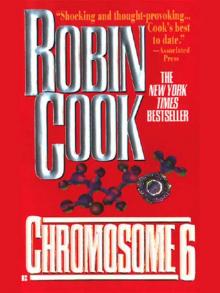 Chromosome 6
Chromosome 6 Brain
Brain Intervention
Intervention Invasion
Invasion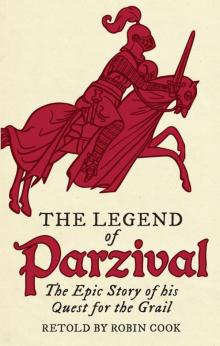 The Legend of Parzival: The Epic Story of His Quest for the Grail
The Legend of Parzival: The Epic Story of His Quest for the Grail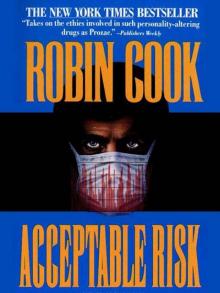 Acceptable Risk
Acceptable Risk Cell
Cell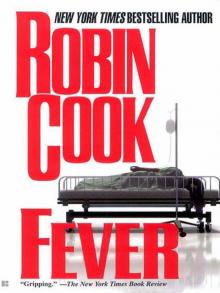 Fever
Fever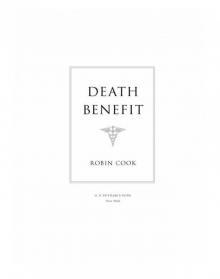 Death Benefit
Death Benefit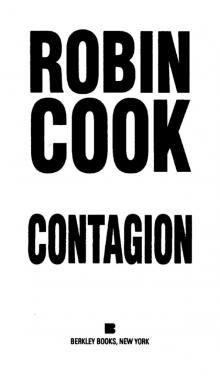 Contagion
Contagion Mindbend
Mindbend Coma
Coma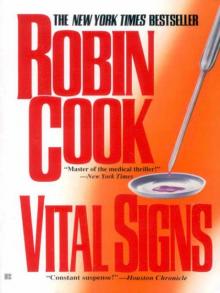 Vital Signs
Vital Signs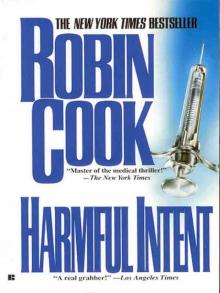 Harmful Intent
Harmful Intent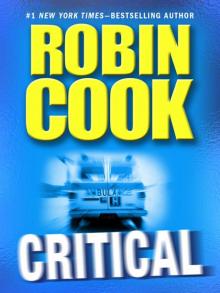 Critical
Critical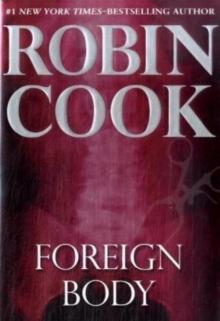 Foreign Body
Foreign Body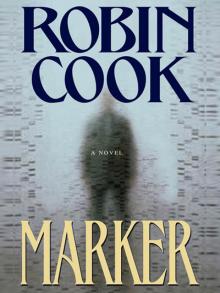 Marker
Marker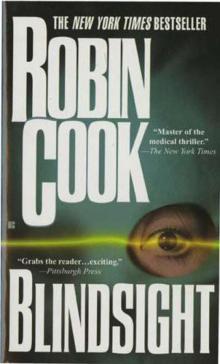 Blindsight
Blindsight Terminal
Terminal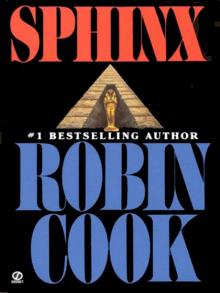 Sphinx
Sphinx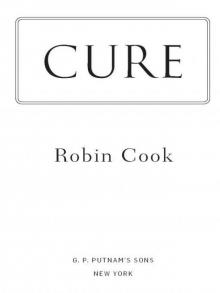 Fatal Cure
Fatal Cure Host
Host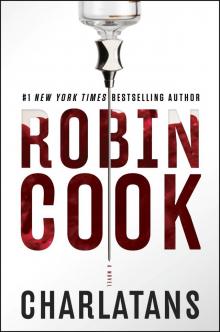 Charlatans
Charlatans Crisis
Crisis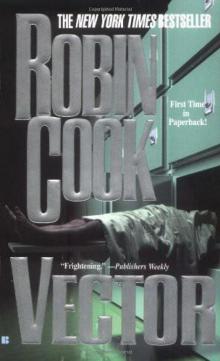 Vector
Vector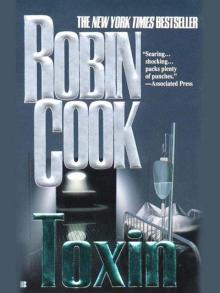 Toxin
Toxin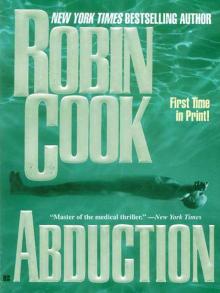 Abduction
Abduction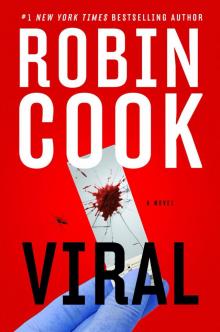 Viral
Viral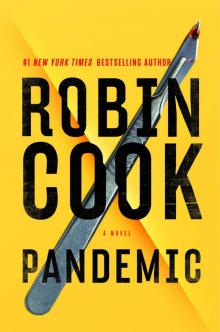 Pandemic
Pandemic Outbreak
Outbreak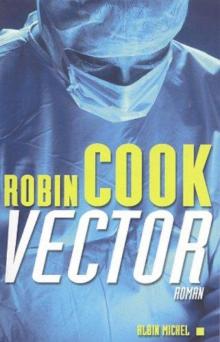 Vector js&lm-4
Vector js&lm-4 Godplayer
Godplayer A Brain
A Brain Year of the Intern
Year of the Intern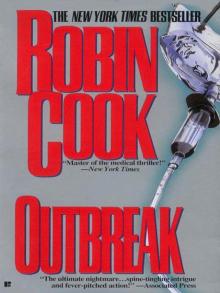 Outbreak dmb-1
Outbreak dmb-1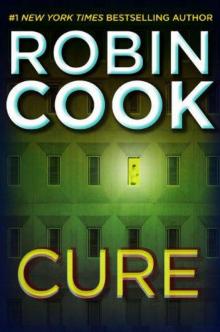 Cure
Cure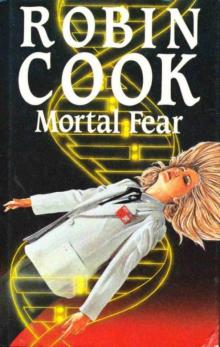 Mortal Fear
Mortal Fear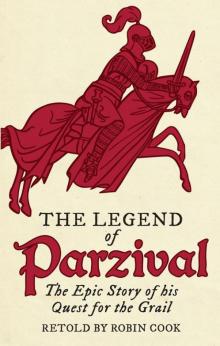 The Legend of Parzival
The Legend of Parzival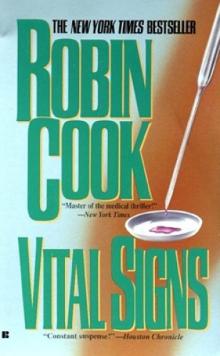 Vital Signs dmb-2
Vital Signs dmb-2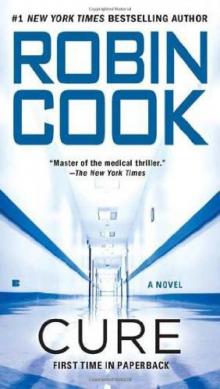 Cure (2010) sam-10
Cure (2010) sam-10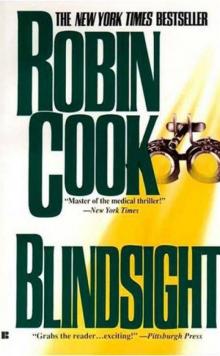 Blindsight sam-1
Blindsight sam-1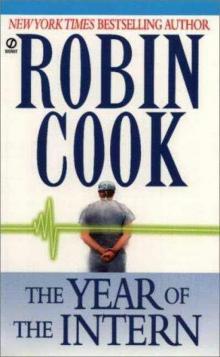 The Year of the Intern
The Year of the Intern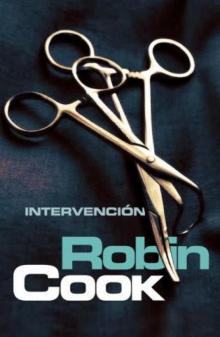 Intervention sam-9
Intervention sam-9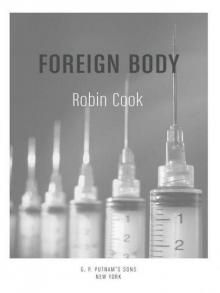 Foreign Body sam-8
Foreign Body sam-8